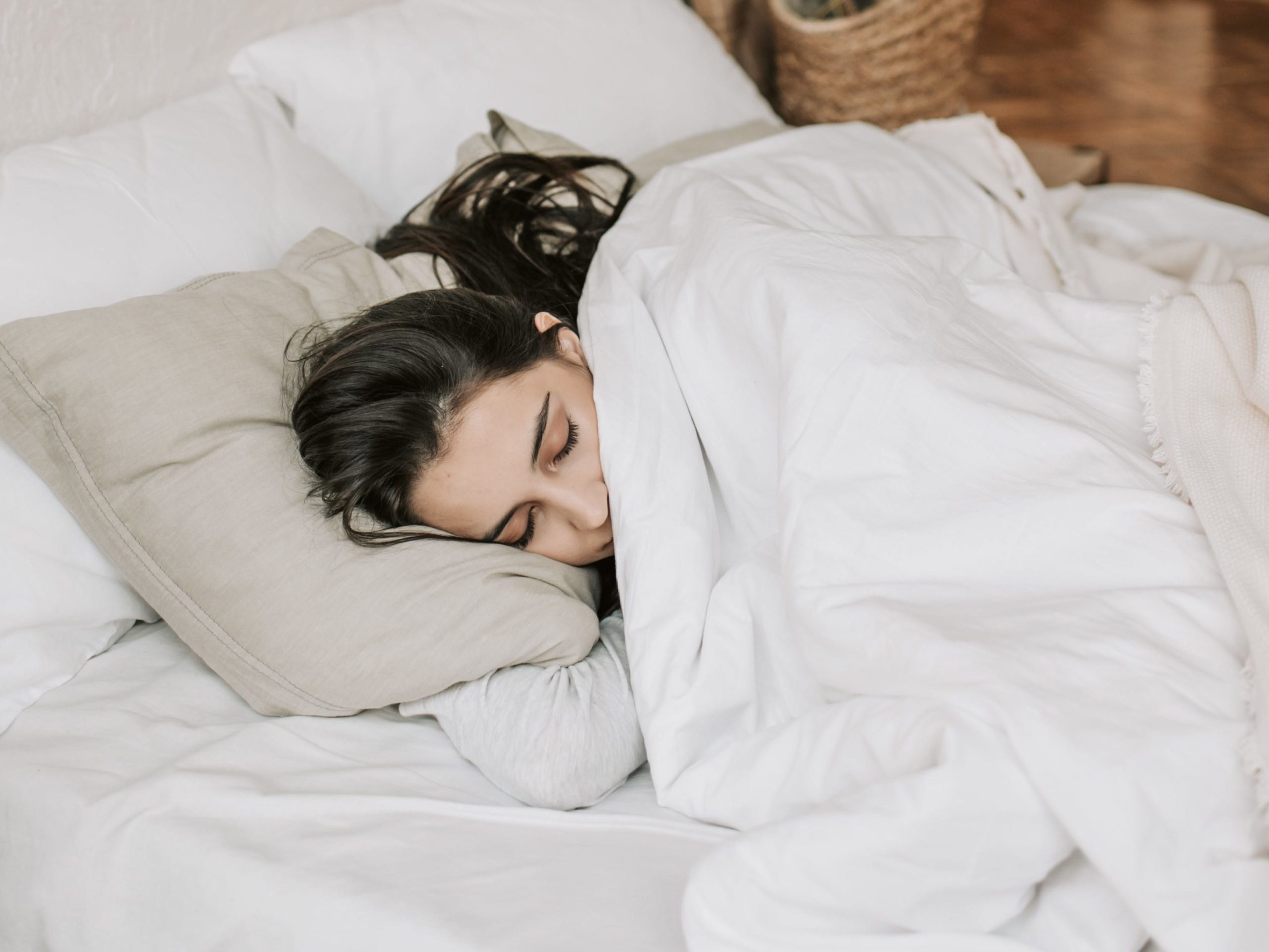Use This Amazing Science-Based Sleep Guide Can Boost Wellness and Regulate Weight
Sleep is essential to wellbeing. A nap here and there will not replace a good night’s sleep. We need hours of rest at night to maintain health. Use this science-based sleep guide to easily gain all the benefits of sleeping tonight!

Learn why we sleep, the benefits of a good night’s rest, and how this science-based sleep guide can change your life, one night at a time!
The Importance of Sleep
Sleep is something everyone does. It is needed for physical and mental wellbeing. Both the brain and the body are active during sleep. Many processes occur while we sleep, including the release of growth hormones, the repair of the body, and an immune system boost.
Difference stages of sleep also affect memories and learning ability. The information gained during the day is processed during sleep.
Benefits
Sleeping itself has a lot of benefits. It can increase your attention span, boost memory, and increase your learning capability. Your mood is improved with better sleep, leading to you being more compassionate, empathetic, and kind.
Sleep is also essential for keeping the immune system, fighting germs and bacteria, and boosting healing. Therefore, sleep can help us fight sickness, and good sleep helps us get sick less often.
The release of growth hormones during sleep is important. This hormone is essential for muscle building and maintaining a healthy weight. It helps reduce stress, which in turn reduces inflammation in the body.
Risks of Not Sleeping
Not getting enough sleep is dangerous. Not only does it leave us exposed to getting sick more, but it can also lead to unintentional weight gain, a reduction in cognitive skills, headaches, lack of concentration, loss of happiness, and a plethora of other negative consequences. Driving while drowsy is as bad as driving drunk, a reckless and potentially life-threatening experience.
Too little sleep can sometimes be alleviated by taking a short nap during the day. Here is a complete guide to napping like a pro, but in reality, a nap will not replace sleep.
Science-Based Sleep Guide
Here is a science-based sleep guide you can try to get a good night’s rest. This is a basic guideline to help you customize and create a routine that works for you.
1. Declutter the Mind
We go through a lot in one day. From work to social interactions to hobbies, we tend to have a racing mind by the time evening rolls around. Many of us continue to think of work long after it is done, which emails we need to send, what work is left for tomorrow, etc.
At that point, you are too tired to make anything to eat but a microwave meal and have little time for yourself. You then stay up late looking for some time for yourself, watching a movie, scrolling, and before you know it, it’s 1 am and the morning alarm is in 5 hours.
Instead of feeling overwhelmed with little time at the end of the day, make sure you segment your day into time blocks that allow you more time in the evening for yourself. Stop work 10 minutes early, and plan for tomorrow. This way, you aren’t thinking about work at 9 pm when you should be preparing for bed. You get time for yourself without having to stay up late for it.
Another way is to start a journal to write down important information you want to store. Write down thoughts, emotions, plans, ideas, and anything else you want to remember. Don’t know where to start with journaling? Check out this guide on 5 brilliant ways to journal!
2. Reduce Distraction
So, picture this; it’s the end of the workday, you are home, you have everything planned for tomorrow, you’ve eaten well, and have time to spare before bed. What do you do? Watch a movie, scroll through social media, or binge a TV show. Treat yourself, right?
Well, all this overstimulation can reduce your quality of sleep. You watch one, two, or three episodes of your favorite TV show, and before you know it, it is 1 am and you need to wake up in 5 hours (same problem). While something like meditation and deep breathing sounds good in theory, your mind wanders back to the events of the day, work, etc. Not relaxing at all. So, what do we do?
Well, instead of going from work to mindful, relaxing, albeit boring activities, try making it a habit to do something in between work and rest. Go for a short walk, listen to a podcast, or scroll through your phone. Enjoy yourself. Have dinner at least 2 hours before going to bed and make sure after dinner time is a bit more relaxing.
3. Mentally Turn Off
Have you ever been physically tired but your mind is racing? This is why the time after dinner needs to be calmer. Read a paperback book, relax with some yoga, or do some light stretching. Take a bath or a hot shower, use a foam roller on achy muscles, or watch the sunset. Make your room a bit cooler, get a nice blanket, and be as relaxed as possible for tonight.
Make your mind calm down as your body calms down. Find a combination of soothing activities that make the end of the day feel like a treat.
Personal Sleep Anecdote
I’m a baby when it comes to sleep. If I don’t sleep at least 7 hours, I get cranky during the day. I am more likely to be hungry as soon as I wake up, crave more junk food, and tend to eat more. Lying in bed trying to fall asleep, waking up in the middle of the night, or a too-early morning notification all made my sleep a disaster.
Napping only gets you so far, and it does not replace a good night’s sleep. Using this science-based sleep guide, I could sleep more consistently, wake up feeling more well-rested, and have more energy throughout the day.
The Takeaway
Sleep is essential for overall health and wellness. While we sleep, the body undergoes a variety of processes that repair and restore the body. While we cannot control everything, we can use this science-based guide to create an evening routine that helps improve and optimize sleep.
Remember that health comes from within, so eat nutrient-dense meals, exercise at least 3 times a week, and care for your mental health. Daily habits become the building blocks for emotional, mental, and physical health. Take care of your gut health too! Learn everything you need to know about gut microbiota today for free here.





